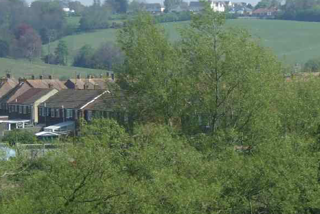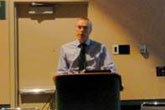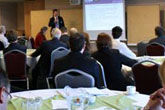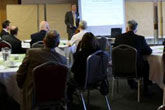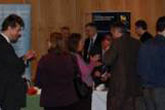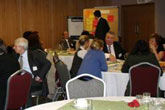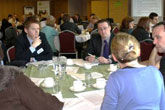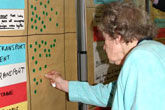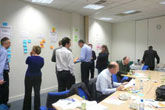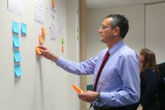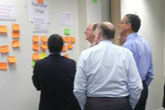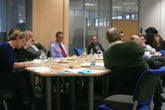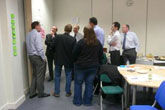The rural-urban fringe (RUF), the space where countryside meets town, is among society's most valued and pressured places. However, in policy and decision-making it remains largely forgotten, lacking sufficient understanding and evidence for integrated management.
Researchers
Alister Scott (PI)
Research background
This project (2011-12) was funded by the Economic and Social Research Council as part of the RELU initiative (Rural Economy and Land Use Programme). For more information, please visit the project's Twitter feed.
This research re-discovered the RUF within more positive, inclusive and proactive agendas for management. Its focus was on assessing the implications of policy and decision-making processes and outcomes for the sustainability of the RUF. The project's chief assessment tool was a framework that uniquely fused ideas from both the Ecosystem Approach (EA) and Spatial Planning (SP) to provide an improved lens through which to view the RUF.
Research aims
- To inform future policy and practice across the UK in addressing management issues concerning environmental change within the rural-urban fringe
- Explore social and natural science concepts of spatial planning and ecosystem services in order to create a theoretical lens to identify and evaluate management issues and needs
- Propose and apply strategic principles within two rural-urban fringe case study areas and incorporate local stakeholders' perspectives
- Promote an integrated and spatial model for rural-urban fringe management, and signpost further research addressing the environmental change agenda.
Research methods
 The methodological approach encouraged academic and policy specialists to work collectively throughout the research process. Working across traditional urban/rural and natural/social science boundaries, this team share knowledge and experience incorporating the latest theoretical and policy contributions from spatial planning and ecology in order to create a better model within which strategic planning for the rural-urban fringe might flourish.
The methodological approach encouraged academic and policy specialists to work collectively throughout the research process. Working across traditional urban/rural and natural/social science boundaries, this team share knowledge and experience incorporating the latest theoretical and policy contributions from spatial planning and ecology in order to create a better model within which strategic planning for the rural-urban fringe might flourish.
Research outcomes
Three cross-cutting themes emerged from the fusion of SP and EA ideas; Connections, Time and Values. These concepts were unpacked within eight themed workshops and two RUF site-based visioning exercises which formed the primary data for the project. All results were disseminated through reports, papers, real/virtual conferences, the project website and podcasts.
Re-discovering the Rural-Urban Frindge (RUF)
- The RUF needs to be re-positioned as an opportunity space based on assessments of the needs of the people, place and environment within the RUF itself.
- The rural aspects of the fringe need to be considered more explicitly in policy and decisions rather than imposing urban expansion models.
Reconnecting the urban and rural divide
- Agendas, policy frameworks and goals tend to be pursued separately across the urban and rural institutions creating a marked policy and practice ‘disintegration’.
- The ideas of SP and the EA are jargon-heavy. Our cross-cutting themes of Connections, Time and Values allow professional sectors and publics to engage, interact and participate more effectively within more inclusive and understandable concepts and language.
Improving connections by crossing boundaries
- The RUF is an ‘edge’ space crossing many boundaries with a complex pattern of explicit and hidden connections. This requires unpacking within and across RUF spaces. Working across multiple scales (national, landscape, local and neighbourhood), sectors (e.g. landscape, nature conservation, economic development) and actors (e.g. planners, developers, environmentalists, communities) is key, yet demands significant changes in work practices and tools to deliver more joined-up responses.
Adapting for the long term
- Policymakers often fail to learn from the past when planning for the future. Here, the lack of adequate resources to capture institutional and human capital is significant. For example, research undertaken on the RUF for the Countryside Agency (2000-2006) was only available through personal copies of a project officer.
- The RUF is a transitory space, defined within short-term thinking but requiring more long term policy and investment opportunities. However, learning from new and experimental approaches is key when planning for uncertainty with partial evidence.
Managing contested values
- The RUF is valued differently by different people and those values need to be unpacked using monetary and non-monetary approaches. There is a danger that, in decision making we only value what can be easily measured, as opposed to measuring what people really value.
